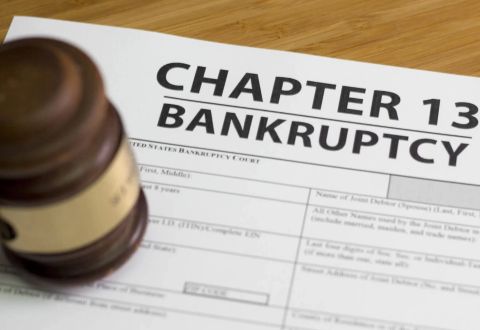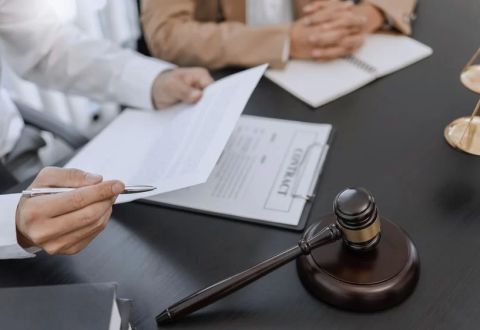Legal Advice for Partnerships: Expert Guidance for Forming and Managing Your Business Partnership
- 1. Understanding the Need for Legal Advice in Partnerships
- 2. Key Legal Considerations When Forming a Partnership
- 3. The Importance of a Strong Partnership Agreement
- 4. Common Legal Challenges in Business Partnerships
- 5. Real-Life Example: How Legal Advice Saved a Business Partnership
- 6. Finding the Right Legal Counsel for Your Partnership
- 7. How Free Range Lawyers Can Help Your Partnership Thrive
1. Understanding the Need for Legal Advice in Partnerships
When forming a business partnership, having the right legal advice is crucial. Partnerships involve shared responsibility, joint liabilities, and a need for clear understanding between all parties involved. Whether you're entering into a new partnership or managing an existing one, legal counsel ensures that the terms of your business relationship are defined, fair, and enforceable. Without expert legal guidance, you risk misunderstandings, disputes, or even potential legal actions that can jeopardize your business.
In this article, we’ll explore key aspects of legal advice for partnerships, highlighting the importance of proper planning, effective partnership agreements, and how legal counsel can prevent costly issues down the road.
2. Key Legal Considerations When Forming a Partnership
Forming a business partnership is an exciting venture, but it’s vital to consider several key legal aspects to ensure that your partnership starts off on the right foot. Here are some of the critical legal considerations you should address:
1. Partnership Structure
One of the first decisions you'll need to make is the structure of your partnership. Will it be a general partnership, where all partners share responsibility equally, or a limited partnership, where one or more partners have limited liability? The structure you choose will impact everything from liability and taxes to decision-making and profit sharing.
2. Business Name and Registration
Choosing the right name for your business is essential. You’ll also need to register the name with the appropriate authorities to ensure no one else can claim it. Legal advice can help you navigate the process of name registration and ensure compliance with local business laws.
3. Liability and Risk Allocation
It’s crucial to establish how liability and risk will be shared among the partners. Without clear legal guidance, disputes over financial responsibility or legal liabilities can arise, especially in situations where debts or legal issues surface.
3. The Importance of a Strong Partnership Agreement
The foundation of any successful partnership lies in a well-drafted partnership agreement. This document outlines the terms of your business relationship, including the roles and responsibilities of each partner, profit distribution, and the processes for resolving disputes. A strong partnership agreement can prevent future conflicts and clarify expectations, making it one of the most important legal tools for any partnership.
1. Profit and Loss Distribution
Your partnership agreement should clearly define how profits and losses will be shared. Will each partner receive an equal share, or will distribution be based on other factors, such as investment or workload? Having this outlined upfront can prevent future misunderstandings.
2. Decision-Making Authority
Who will have the final say on business decisions? Will decisions require unanimous approval, or will they be made by majority vote? A clear structure for decision-making helps ensure that all partners know their roles in the business.
3. Exit Strategy and Dissolution
It's essential to outline an exit strategy in case a partner wants to leave the business. This includes what will happen to their shares, how the business will be valued, and how the partnership will be dissolved if necessary. Legal advice ensures these processes are legally sound and fair for all parties.
4. Common Legal Challenges in Business Partnerships
While partnerships offer numerous benefits, they can also present unique legal challenges. Some of the most common issues include:
1. Disputes Over Profit Distribution
Disagreements over how profits should be split are one of the leading causes of partnership disputes. Legal advice can help establish clear guidelines on profit distribution, ensuring all partners are on the same page from the start.
2. Partner Exit or Death
When a partner leaves or passes away, it can disrupt the entire business operation. Without proper legal provisions in place, it can be difficult to manage the transition. A lawyer can help you navigate this process smoothly, ensuring that the remaining partners can continue running the business.
3. Breach of Partnership Agreement
If one partner breaches the terms of the agreement, such as failing to fulfill their financial obligations or engaging in activities detrimental to the business, legal action may be necessary. Having a lawyer on hand ensures that you know your options for resolving these issues effectively.
5. Real-Life Example: How Legal Advice Saved a Business Partnership
Let’s look at a real-life example of how legal advice helped resolve a partnership dispute. A group of three entrepreneurs started a tech startup. They created a partnership agreement with clear terms, but one partner became disengaged, and disputes over profit sharing and responsibilities arose.
With the help of legal counsel, the partners were able to renegotiate the agreement, redistribute responsibilities, and avoid a costly legal battle. Legal advice helped them find a fair and amicable resolution that preserved their partnership and the future of the business.
6. Finding the Right Legal Counsel for Your Partnership
Finding the right lawyer for your partnership is key to ensuring that your business remains legally sound and protected. Here’s what to look for:
1. Specialization in Business Law
Look for a lawyer who specializes in business law and has experience with partnerships. They should understand the complexities of partnership agreements, tax laws, and business structure.
2. Proven Experience with Partnerships
The best legal advice comes from lawyers who have a proven track record of handling partnership cases. They should be able to provide references or case studies that demonstrate their ability to navigate partnership issues successfully.
3. Clear Communication and Accessibility
Make sure the lawyer you choose is easy to communicate with, responds to inquiries promptly, and takes the time to explain legal terms in a way that’s understandable to you.
7. How Free Range Lawyers Can Help Your Partnership Thrive
At Free Range Lawyers, we specialize in providing expert legal advice for partnerships. Whether you’re just starting out or need assistance managing an existing partnership, we offer tailored legal solutions that protect your interests and help your business thrive.
Visit Free Range Lawyers to learn more about how our experienced team can provide the legal guidance you need to make your partnership a success. Our expert legal counsel ensures that your business is protected, your partnership is strong, and your future is secure.






